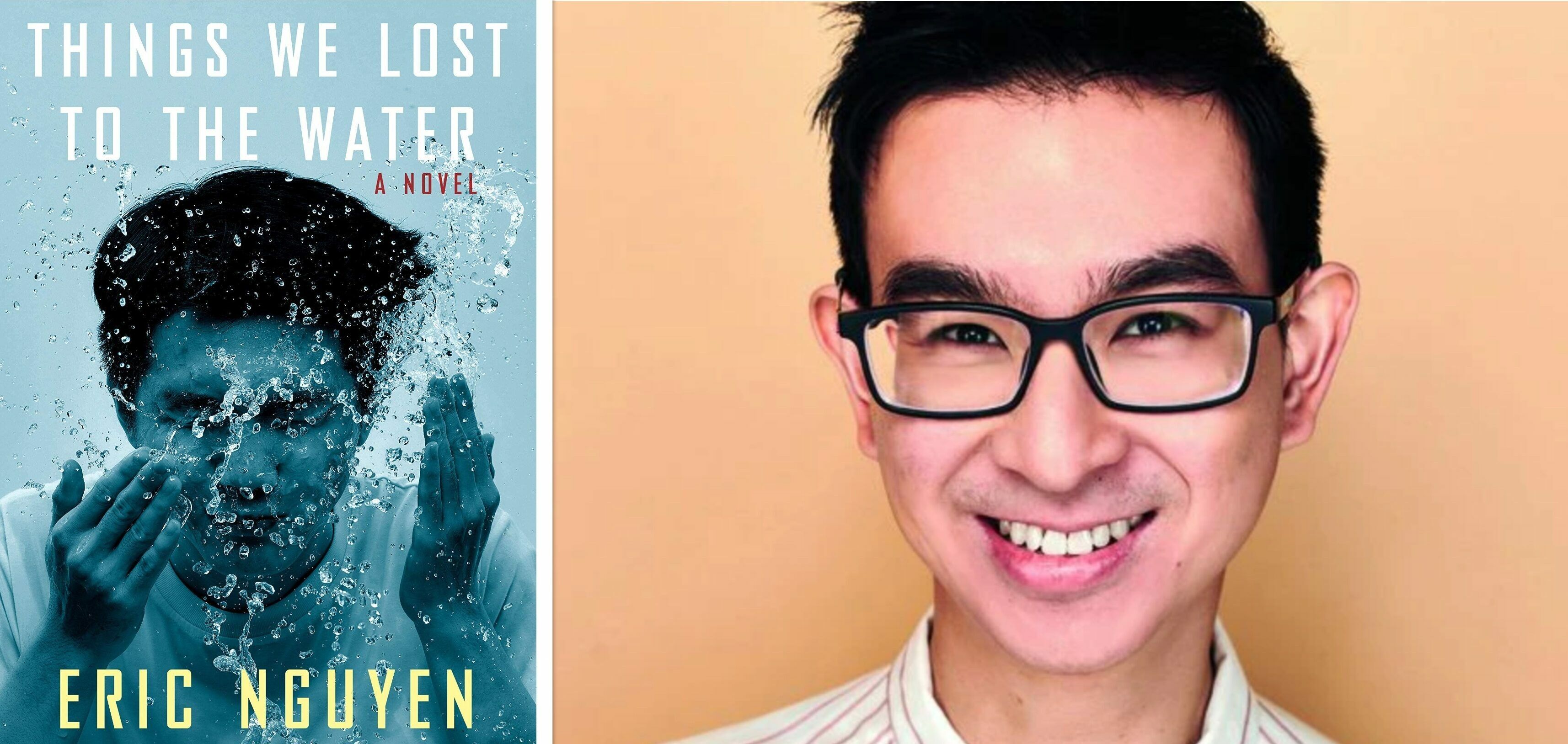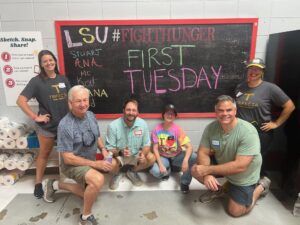Between the lines of ‘Things We Lost to the Water’ with author Eric Nguyen
Literature buffs who picked up our July issue will have already seen our “Off the Page” review of Things We Lost to the Water, the debut novel from McNeese State University MFA graduate Eric Nguyen. Set in New Orleans over a span of 26 years, the story—which also appears on former president Barack Obama’s summer 2021 reading list—follows a mother and her two young sons as they rebuild lives as refugees of the Vietnam War, examining the complicated links between nationhood, selfhood and the flux that upholds them both. The themes resound with a personal tone from Nguyen, whose own upbringing in an immigrant household, as well as his observations of the Vietnamese community in New Orleans, inspired the heart of the novel.
To learn more about his unique journey, as well as the journey to publication, we caught up with the Maryland native for a special look between the lines:
“The initial brainstorming for the novel took place before my MFA program, but I felt like I needed the program to be able to sit down and utilize guidance from mentors so that I could truly begin the writing process,” says Nguyen, who graduated from McNeese in 2015. “I always knew in the back of my mind that I wanted it to be a longer piece. My plan was to expand the story—which did start with the mother character—and follow her through the years between arriving in America and Hurricane Katrina. Eventually it became a longer narrative, and then turned into this more realized, polyphonic novel of different voices within the same family.”
After finishing the MFA program, Nguyen, who now lives in Washington, D.C., knew that the essence of the story’s setting—especially its ending in the midst of Hurricane Katrina—would require a particular focus.
“It’s a very specific story,” he says, “and in a way it’s not my story to tell, because I wasn’t there for Hurricane Katrina. So there was a lot of research that went into it, and a lot of being careful and respectful toward the people of New Orleans and those who actually experienced Katrina.”
Still, Nguyen’s own insights dominate the text, constantly awash in in the borderlands between American and Vietnamese culture—a mix that often stirred curiosity in early readers from different demographics.
“I think most of what surprised people who read early versions of the novel were things that revolved around Vietnamese culture and the Vietnamese experience,” he says. “It could be small things, like writing about how the mother uses chopsticks to cook. Some people hadn’t thought of that before, whereas it was totally normal for me to see my mother do that as a kid. Other times it can be details like characters drinking Heineken beer, which is kind of the beer of choice for Vietnamese people where I grew up. It’s these little, specific tidbits that can make a light go off in people’s head and give the story texture.”
In one scene, for example, the mother, Huong, discovers longans—a fruit native to southeast Asia and not usually spotted in typical US grocery stores—growing in the unassuming backyard of a fellow New Orleans woman from Vietnam. Though a short and simple moment, Nguyen’s symbolic integration of the Old World and the New stirs up one of the novel’s quieter, more emotional payoffs, and reminds readers to take note of what hides in plain sight.
“A lot of people I’ve talked to are surprised to learn that there are thriving Vietnamese communities in New Orleans and the South,” he says. “There are just so many hidden stories that are not really told, especially about people of color, and especially about Asian Americans in the South. But they’re all part of the American story, and I hope to see much more of their stories in the mainstream in the next few years.”
Another demographic he would love to see reading his writing: Nguyen’s own parents, who don’t read English.
“I’m looking forward to someone translating the book into Vietnamese,” he says, “because in a way I feel like this book is for my parents’ generation and what they went through.”
And maybe literature really is one of the best ways to cross that divide, a way to narrate experiences often too difficult to recount in real life. Nguyen’s parents, he says, rarely spoke about their own journey to the United States.
“I feel like a refugee is typically a kind of person who just wants to reset with an ‘It’s in the past, what’s the use of talking about it anymore’ attitude, especially since the Vietnamese diaspora from South Vietnam didn’t just lose a home, they also lost a country,” he says. “For them, it was important to keep their eyes on the future, particularly for their kids.”
Now, Nguyen dons the mantle himself.
“Writing this book has been such a personal project, trying to find out what it’s like to be a refugee and what that experience is like,” he says. “Now that I know that better, I feel like I’m ready to move on and write something new.”
Stay updated with Nguyen and his upcoming projects at ericpnguyen.com.












